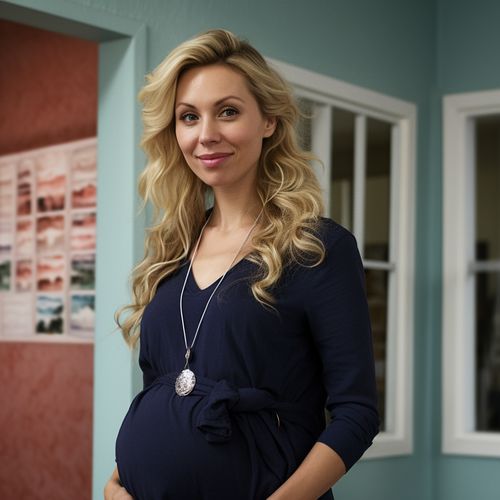More women are choosing to wait to have children than ever before. This is mainly due to the rising importance of women in the workforce, putting their home life on hold so they can excel on their career paths. The result is some spectacular women at work, but also women who are older then past generations by the time they have children. Is pregnancy after 35 more risky though? The answer is complicated.
The Chances of Birth Defects Rise with Older Women
The chance of chromosome based birth defects is higher in an older women. The most common of these birth defects is Down’s syndrome, but there are many others such as Triple X Syndrome and XYY Syndrome. These birth defects may cause no symptoms at all, or are so severe they lead to the death of the child.
Testing is available to screen for chromosome related birth defects, as well as genetic testing. The good news is that although chromosome related birth defects go up after 35, a 2014 study found that the risk of major physical deformities go down.
There’s a Greater Risk to You
It’s not just the baby who is more at risk. Women over 35 are more likely to need a C-Section, and the risk of pre-eclampsia and gestational diabetes also go up. If you’re planning to have a child after 35, it’s very beneficial to start planning early, and to make sure the rest of your body is in perfect health in order to reduce the risk of other health issues.
There’s a Greater Risk You Might Not Conceive at All
Fertility declines as we get older. Women are born with all the eggs they will ever have, and some are shed every single time we ovulate. This monthly cycle gradually dwindles the amount of available eggs we have until there aren’t very many left at all.
By the time you are 35, you may find it more difficult to get pregnant, and the risk of miscarriage is greater due to the eggs available being of lower quality. It may also be harder for sperm to fertilize the eggs, making it that much more difficult.
If you have tried to conceive for over a year and have had no luck, you may need to consult a fertility clinic in order to successfully have a baby.
What You Can Do About It
There are greater risks to you after age 35, and also to your baby. That doesn’t mean you need to be childless the second your 35th birthday strikes, it simply means you may need more medical assistance. Before trying to conceive, have a complete physical done, and ask your doctor for any advice they may have in giving you the best chance at pregnancy. You may also want to get genetic testing done, so you can see if any children you conceive will be healthy before breaking your heart with a potentially tragic pregnancy.
While the risks do rise as you get older, plenty of healthy babies are also born to older women. Don’t let your dreams of being a parent fade because you’re a bit older than the norm, it is still possible.
FREQUENTLY ASKED QUESTIONS
Getting pregnant after the age of 35 is a topic that is of concern to many women who are considering starting a family. There are many questions that arise regarding the risks and complications associated with this process. In this article, we will answer some of the most commonly asked questions about getting pregnant after the age of 35.
Q. What are the risks associated with getting pregnant after 35?
A. Women who get pregnant after the age of 35 are at a higher risk of developing complications such as gestational diabetes, high blood pressure, premature birth, ectopic pregnancy, and stillbirth. They are also more likely to need a C-section delivery.
Q. Why does the risk increase after 35?
A. The risk increases after 35 because a woman’s eggs are of lower quality and quantity than when she was younger. Additionally, the risk of chromosomal abnormalities such as Down syndrome and other genetic disorders also increases with age.
Q. Can I still get pregnant after 35?
A. Yes, it is still possible to get pregnant after 35, but it may be more difficult. Women who are trying to conceive after 35 are advised to seek the help of a fertility specialist to increase their chances of success.
Q. What can I do to decrease the risks associated with getting pregnant after 35?
A. Women who are trying to conceive after 35 can decrease their risk by maintaining a healthy weight, eating a balanced diet, taking prenatal vitamins, and avoiding smoking and alcohol. They should also schedule regular prenatal appointments with their healthcare provider.
Q. Should I freeze my eggs if I am considering getting pregnant after 35?
A. Freezing your eggs is an option that women who are considering getting pregnant after 35 may want to consider. This can increase their chances of having a successful pregnancy later in life. However, this process can be expensive and is not a guarantee of success.
In conclusion, getting pregnant after the age of 35 comes with an increased risk of complications. However, with proper care and monitoring, many women are able to have successful pregnancies later in life. It is important to discuss any concerns with a healthcare provider and to make decisions that are best for you and your family.
Photo by Anthony Cunningham for Zoom Baby
Zoom Baby is a leading supplier of Pregnancy Tests and Ovulation Test Kits





